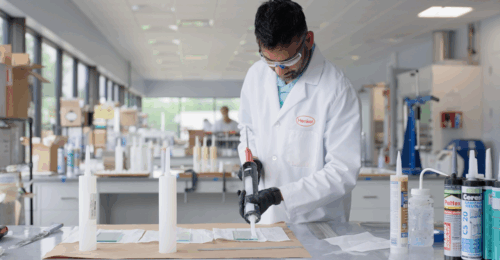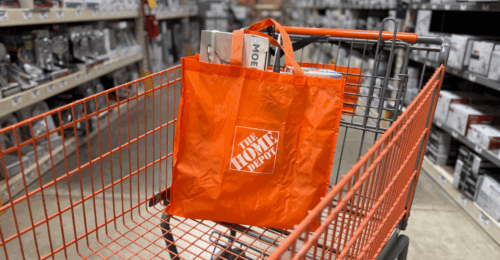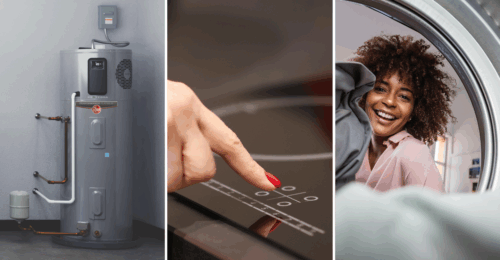At 3M, sustainability commitments and product life cycle innovation are more than phrases issued in press releases and annual reports – they are woven into the culture. That’s true for reducing plastics too.
Sustainability acts like a motivational challenge to design products that not only address end-user needs, but also solve environmental challenges. When The Home Depot asked suppliers to participate in its Plastic Reduction Program, 3M was already on board. In fact, 3M has set its own commitment to reducing virgin, fossil-based plastics by 125 million pounds by 2025.
Over the course of 2021 alone, 3M reduced virgin plastics in products sold by The Home Depot by 300,000 pounds.
They did so by replacing virgin plastics with recycled content in the manufacturing of packaging tapes and dispensers. Anyone who has purchased Scotch™ brand packing tape from 3M will appreciate that the red dispenser is now primarily made of recycled plastic instead of virgin polystyrene. The tape itself includes recycled materials as well.
To realize the impact of converting from virgin plastics to recycled plastics, it helps to understand the product life cycle, from sourcing and engineering to packaging and disposal. For background on the transition, we spoke to Ann Meitz, VP of Sustainability and Packaging Innovation.
The conversion from virgin plastics to recycled plastics comes with challenges.
Compared to virgin plastics which are manufactured to be abundant and consistent, recycled plastics are more difficult to source, less physically consistent and often more expensive. The switch from one type of plastic to another requires research, engineering, testing, patience, and time to ensure a product of equal or better quality than those made from virgin plastics can be produced. Because any drop in product performance is a no-go for 3M.

The upside of reducing virgin plastics is huge.
The manufacturing of virgin plastics requires fossil fuel, or oil, extraction. The extraction requires energy, and the manufacturing requires more energy. According to Meitz, the shift from virgin, fossil-fuel plastic to recycled plastic can result in a 70% decrease in greenhouse gas emissions.
3M has many levers they can pull to reduce the environmental impact of their products. Replacing materials is one approach. The company also believes in innovating, designing products and packaging to eliminate plastics altogether.
Sometimes, the answer to an environmental challenge means creating something new.
Scotch Cushion Lock™ is a new packing product with the potential to make plastic Bubble Wrap obsolete. An expanding paper product, Cushion Lock looks like a roll of kraft paper with slits which expand to create air pockets. It’s made with 100% recycled paper and is completely curbside recyclable. It also takes up much less space than traditional plastic Bubble Wrap. While the company has no plans to phase out Bubble Wrap today, Meitz says that 3M is not afraid to replace its own products with more sustainable options when performance is equivalent or better.
When it comes to The Home Depot’s Plastic Reduction Program, Meitz notes that 3M expects their numbers to jump significantly for 2023. Beginning in 2019, the company issued a sustainability value commitment which requires that every new product address sustainability issues. Examples include reusability; recyclability; energy, waste or water savings; responsible sourcing; and renewable materials.






